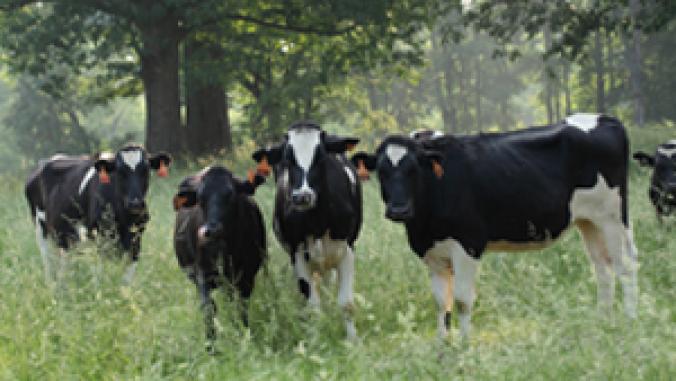An Uninvited Thanksgiving Guest: BPA
<p>The Breast Cancer Fund tested BPA levels in seven products that frequently make their way to the Thanksgiving table, finding 43 percent had levels higher than the amount associated with disrupting in utero brain development in lab studies.</p>

Turkey image via Shutterstock
We've reported on Bisphenol-A extensively at GreenBiz.com, including how the gender-bending chemical is pervasive in everyday products, ranging from receipt paper and baby bottles to the epoxy lining of cans used as food packaging.
So it was not much of a surprise to see a study released today concluding that many families may receive a hearty serving of BPA alongside their Thanksgiving turkey next week. The chemical mimics estrogen and has been linked to reproductive and developmental problems.
The Breast Cancer Fund tested BPA levels in seven products that frequently make their way to the Thanksgiving table. The nonprofit also tested the four products purchased in four different states, for a total of 28 samples.
They found that 12 of the samples had BPA levels above 11 parts per billion (ppb) the amount that has been associated with disrupting in utero brain development in lab studies. Researchers also found wide variability in the same product purchased in different states. For example, BPA levels found in a can of Campbell's turkey gravy ranged from 5 ppb in New York to 125 ppb for a can bought in Minnesota. The Breast Cancer Fund said this could be due to inconsistencies in transportation and storage conditions, as well as in the canning process across facilities or batches.
No BPA was detected in samples of Ocean Spray Jellied Cranberry Sauce.

The Breast Cancer Fund has been pushing food manufacturers to eschew BPA in the lining of cans used to package foods through its Cans Not Cancer campaign, launched in April. According to the nonprofit, rats and mice experienced altered mammary gland development because of BPA exposure in lab tests.
The U.S. Food and Drug Administration said in June 2010 that recent studies "provide reason for some concern about the potential effects of BPA on the brain, behavior and prostate gland of fetuses, infants and children." The agency said it is conducting its own in-depth studies to get to the bottom of uncertainties surrounding BPA. and supports efforts to reduce human exposure.
GreenBiz.com reached out to the food manufacturers in the Breast Cancer Fund study to get their stance on BPA and hear the latest on their BPA plans. Here's what they told us:
Campbell's: Conducting testing on BPA substitutes, lauded for transparency on the issue in the 2010 report, "Seeking Safer Packaging." "We recognize that some consumers have expressed concern over BPA, that is why we are following all of the science and research," Dave Stangis, Campbell's vice president of CSR, sustainability and community affairs, said in an email. "Because of the views expressed by some consumers, we have been examining potential alternatives to BPA for use in our packaging materials for several years. This work is continuing."
Del Monte: No response as of press time.
General Mills: Completed transition of its Muir Glen tomato products to BPA-free cans. "Scientific and governmental bodies worldwide have examined the science and concluded that the weight of evidence supports the safety of BPA, including recent comprehensive risk assessments in Japan and in the European Union," the company said in a statement. "However, we know that some of our consumers would like us to pursue alternatives -- and we are working with our can suppliers and can manufacturers to develop and test alternative linings that do not use BPA."
Nestlé: "Nestlé continuously monitors the packaging material, and other materials in direct contact with its products, and ensures that all materials are safe and comply with regulations," the company said in a statement Wednesday. "While its products are safe and comply with current regulations, as a global food manufacturer and marketer, Nestlé takes into consideration consumer preferences as well as attitudes concerning the use of certain materials. In this context Nestlé has a global program to evaluate the most suitable packaging solutions. This includes evaluating alternatives to Bisphenol A."
Ocean Spray: "The FDA has extensively reviewed the science regarding BPA and has determined that BPA is safe," John Isaf, an Ocean Spray spokesman, said in a statement. "However, due to the recent increased discussion regarding BPA in metal cans, we evaluated our canned sauce products, and learned that our canned sauce products have no detectable levels of BPA."
For a more exhaustive look at how food manufacturers are addressing BPA in packaging, see the aforementioned report from As You Sow and Green Century Capital Management, "Seeking Safer Packaging."
[Editor's note: This is an updated article that adds comment from Nestlé.]





